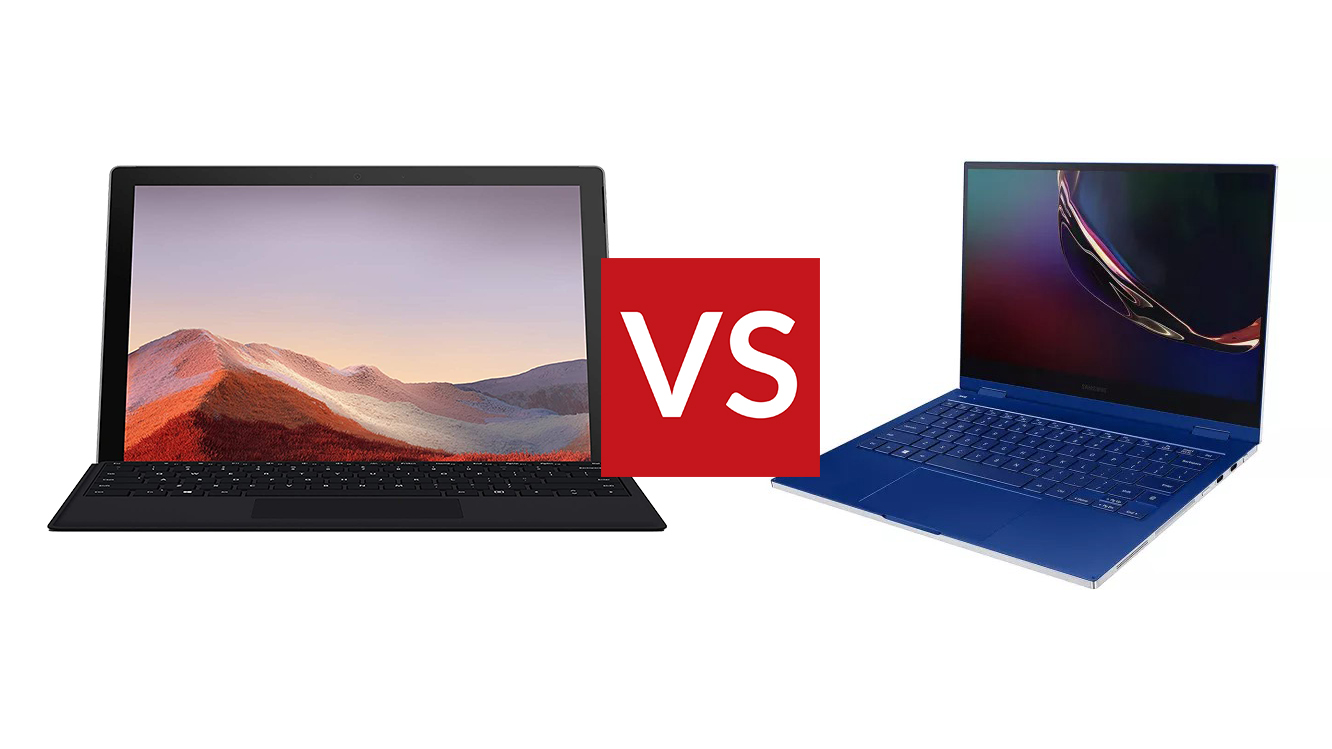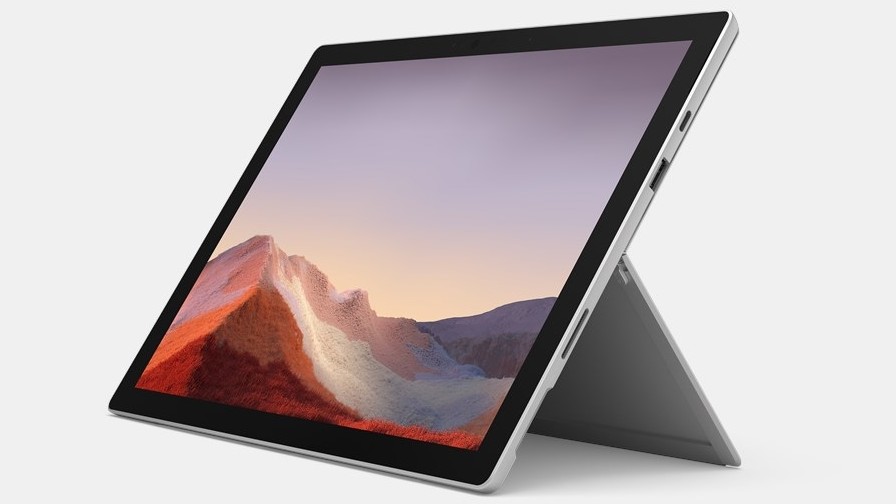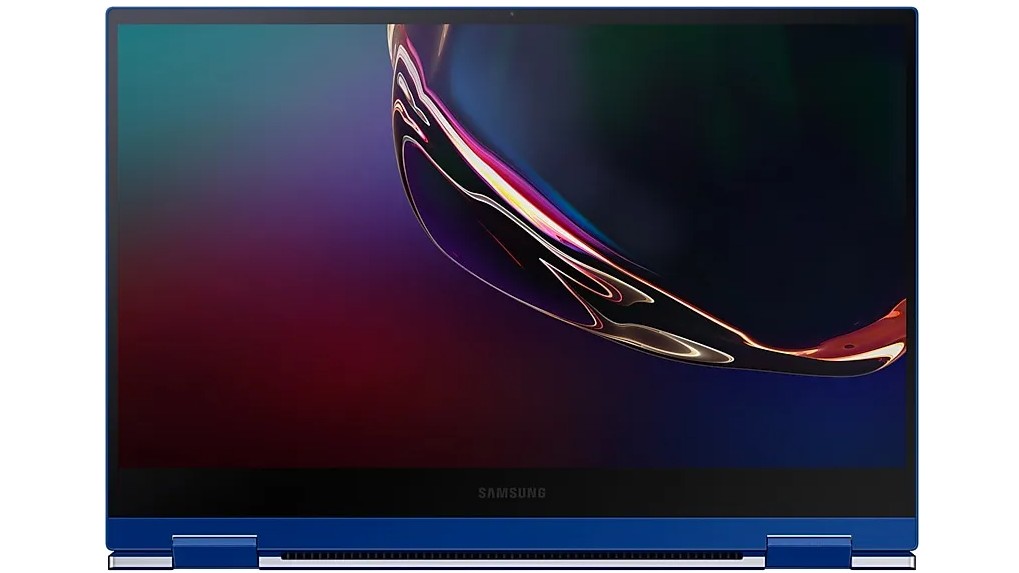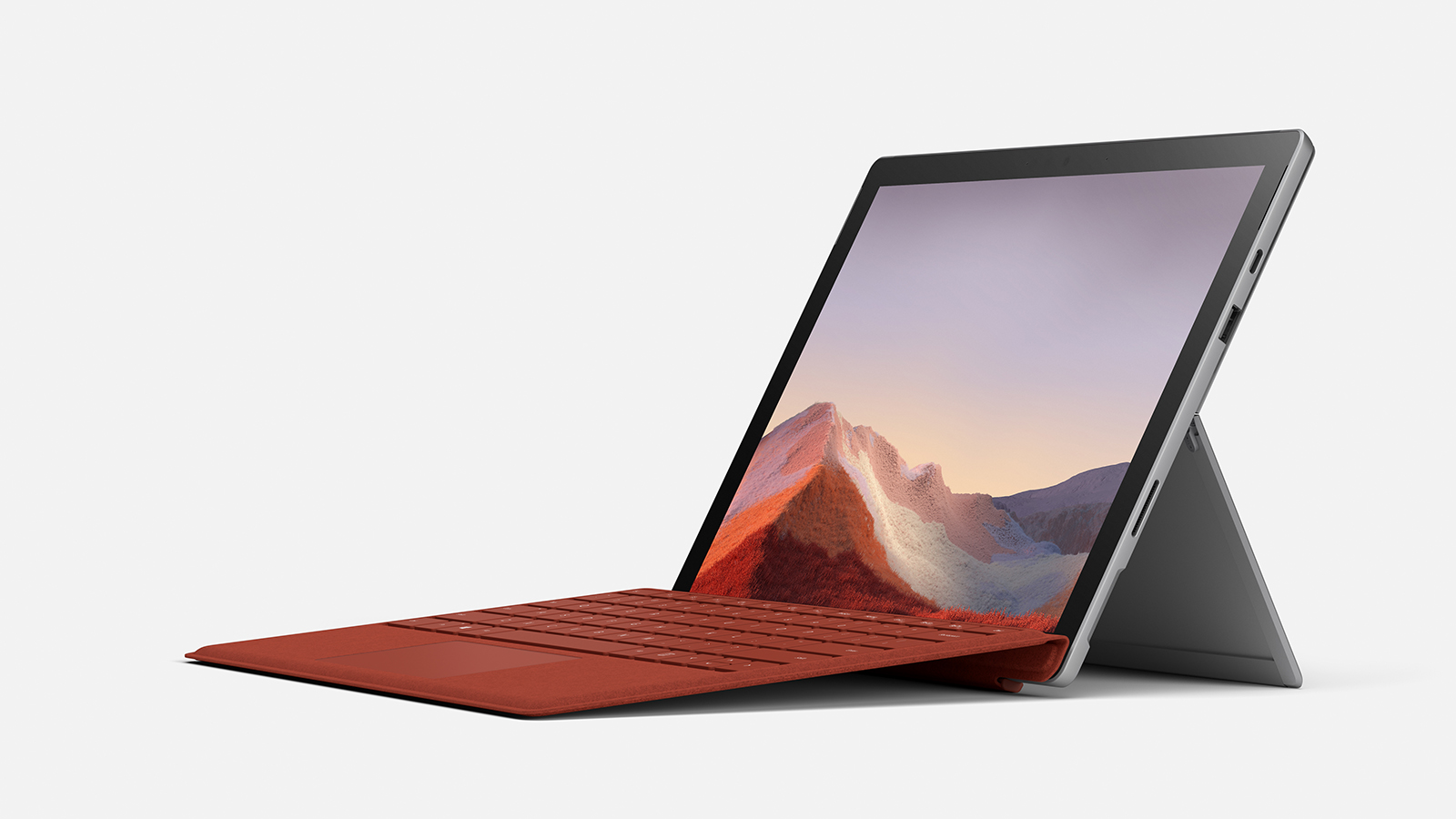Microsoft Surface Pro 7 vs Samsung Galaxy Book Flex: which hybrid laptop is best?
These premium 2-in-1 laptops go head-to-head, as we explore which is the better device for your needs.

Microsoft and Samsung are two of the top makers in the best 2-in-laptop market, which makes them top brands to shop for if you're looking for a hybrid laptop upgrade in 2022.
Here we compare the Microsoft Surface Pro 7 vs Samsung Galaxy Book Flex, which are both top-rated 2-in-1 laptops, comparing their design, display, processing power, features and much more.
In addition, we also lay out the (often complicated) options when it comes to the various configurations and, finally, give you a steer in terms of which laptop you should go for as well as where you can buy them for the cheapest price.
Surface Pro 7 vs Samsung Galaxy Book Flex: design and display

The Surface Pro 7 is a high-end tablet that runs Windows, with a built-in kickstand, that you can connect to and detach from a laptop-style keyboard, which is sold separately. It comes with a 12.3-inch PixelSense touchscreen, offering 400 nits of brightness, and a 2,736 x 1,824 ppi resolution that’s much more detailed than Full HD, but not quite 4K. Also note that, as with all of the Surface range’s screens, it provides a 3:2 aspect ratio, which is taller and squarer than the standard 16:9 ratio.
Samsung Galaxy Book Flex, in contrast, is not detachable but folds throughout 360 degrees. This allows you to convert it into a tablet by folding the keyboard under the screen. That screen comes in either 13.3-inch or 15.6-inch options, and features a QLED Full HD (1,920 x 1,080) display with an impressive 600 nits of brightness, making it more suitable for outdoor use than the Surface. The picture here is a more standard 16:10 ratio. Finally, there’s a nifty little extra that will appeal to artistic types: a free S-Pen stylus.
Surface Pro 7 vs Samsung Galaxy Book Flex: processor, storage and graphics

The Surface Pro 7 comes with a number of different processors, depending on what you want to spend. The lowest priced chip is the increasingly outdated, dual-core Intel Core i3-1005G1. The next model up includes a quad-core chip, the i5-1035G4. And the most expensive configurations boast the more contemporary quad-core chip, the i7-1065G7.
Graphics, meanwhile, is integrated, via either Intel UHD Graphics (in the i3) or Intel Iris Plus Graphics (in the i5 and i7 models). Memory and storage also varies with configuration, ranging from 4GB-16GB RAM, and 128GB-1TB SSD storage respectively.
Get all the latest news, reviews, deals and buying guides on gorgeous tech, home and active products from the T3 experts
Things are a little simpler, meanwhile, for the Samsung Galaxy Book Flex. There are just two models, and both come with 8GB RAM, 512GB SSD storage and the quad-core Intel Core i5-1035G4 processor. Finally, the Surface claims up to 10.5 hours of battery life, while the Samsung Galaxy promises 10 hours.
Surface Pro 7 vs Samsung Galaxy Book Flex: connectivity
The Surface Pro 7 offers five slots to connect your devices to the laptop: one USB-C port, one USB-A port, a 3.5 mm headphone jack, a Surface Connect port and a microSDXC card reader.
The Samsung Galaxy Book Flex also offers five slots, which in this case include two Thunderbolt 3 ports, one USB-C port, a UFS & MicroSD Combo, and a 3.5mm headphone jack.
Surface Pro 7 vs Samsung Galaxy Book Flex: price and verdict

Look on the prices on their respective websites, and you’d be forgiving for thinking the Surface Pro 7 was a lot cheaper than the Samsung Galaxy Book Flex. But dig a little deeper, and you’ll realise the picture is more complicated than it looks.
The basic model of the Surface Pro 7 costs just £699 / $749.99: but that only gets you an Intel Core i3 processor, 4GB RAM and 128GB SSD. You can raise that to 8GB RAM and an i5 processor for £899 / $899, and raise storage to 256GB SSD for £979 / $1,199.
To bump up the RAM to 16GB brings to the cost to £1,139 / $1,139, and to include an i7 processor as well makes the price £1,149 / $1,149. Finally, you can increase the SSD to 512GB for £1,599 / $1,599 and 1TB for £1,899 / $1,999. Remember though, that you’ll need to add between £124.99 and £149.99 ($129.99 - $159.99) to these prices for the Type Cover, depending on which one you choose.
Pricing is much simpler when it comes to the Samsung Galaxy Book Flex. There are just two models, both of which come with an Intel Core i5 processor, 8GB RAM and 512GB SSD. The 13.3-inch version costs £1,349 / $1,149.99 and the 15.6-inch version costs £1,549 / $1,399.99.
When you really start to dig into these somewhat complicated numbers, there’s not really an obvious way to separate the two laptops on price alone. Yes, if £699 is all you have, then the Surface is obviously your best (indeed only) bet. But if you’re have a bit more to spend, and are looking for higher specs, then the prices of the two models start to look evenly matched. Especially when you consider how many discounts might be flying around on any one day (check out our guides to the best laptop deals for the very latest offers).
Beyond price, one obvious way to choose is if you have a strong preference for either a detachable device (the Surface) or a x360 laptop (the Samsung). And if you don’t? Well, if you’re going to do a lot of work outdoors, plan to watch a lot of videos, or both, then we’d suggest the superior brightness of the Samsung makes it your best choice. If you’re an artist or designer, you’ll appreciate the free stylus too. Conversely, if you need to do a lot of processor-heavy work, such as video editing or Photoshop, you'll be better off with the priciest version of the Surface Pro 7 featuring the highest specs.
- More of gamer? Then scope out the best gaming laptops money can buy

Tom May is a freelance writer and author of the book, Great Ted Talks: Creativity. He has been editor of Professional Photography magazine, associate editor at Creative Bloq, and deputy editor at net magazine. He has also worked for a wide range of mainstream titles including Radio Times, NME, Heat, Company and Bella.
